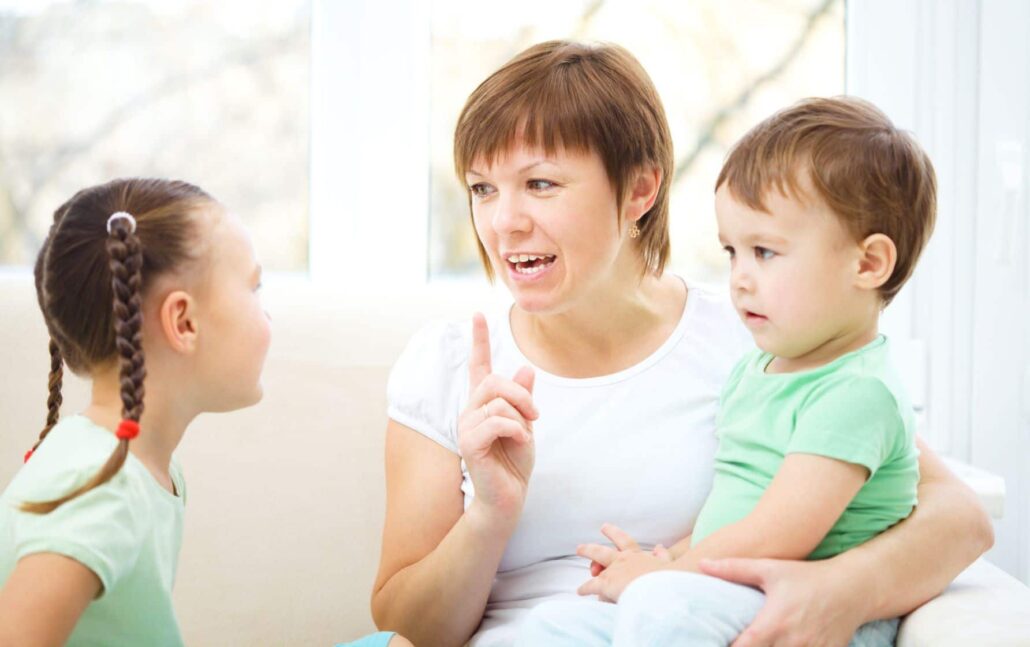Natural Consequences vs Punishment
Home »
Posts Tagged ‘child development’
Natural Consequences vs Punishment
When it comes to how you discipline your child, it’s a very personal choice. However, in Montessori learning, there is a concept called “natural consequence” that can revolutionize the way we discipline our children. Unlike punishment, which utilizes fear to get children to behave well, natural consequence helps children understand the impact of their actions,…
Read MorePhysical Development in a Montessori Preschool
Unlike traditional preschools, a Montessori preschool focuses on developing every aspect of the whole child. This includes a child’s physical development. From the enhancement of hand-eye coordination and sensorial abilities to the development of gross and fine motor skills, a Montessori preschool will make sure that each child develops the skills they will need to…
Read MoreSocial Development in a Montessori School
In a Montessori school, educators don’t merely teach lessons out of a textbook everyday, like you may see in a traditional school. Many of the lessons that Montessori educators teach are valuable life skills that a child will carry with them for a lifetime. Montessori schools focus on developing every aspect of the child –…
Read MoreThe Importance of Sensorial Materials in Montessori Preschool
One of the things that set a Montessori preschool apart from normal daycare is the materials that are used in the classroom. In a regular daycare, children are usually given a variety of toys or educational games to keep them entertained throughout the day. In a Montessori preschool, however, the children are provided with unique…
Read MoreMontessori Philosophy: Celebrating World Holidays with Your Child
As a Montessori parent, you may be looking for new and creative ways to incorporate the Montessori philosophy into your family lifestyle at home. One of the ways you can do this is by developing an appreciation for different cultures by celebrating world holidays. Culture is a major topic of study in the Montessori curriculum…
Read MoreThe Importance of Global Citizenship
As Montessori parents, you want your child to become a part of the emerging world community and to help build that community in the future. Here at the Montessori Academy at Sharon Springs we recognize the importance of global citizenship and how it develops from birth into adulthood. That’s why we make global citizenship a…
Read MoreMontessori Learning through Sensorial Work
Dr. Maria Montessori believed that sensorial experiences began at birth. Through their senses, children are able to study their environment. Through sensorial work, children are able to consciously obtain clear information that allows them to make classifications in their environment. These classifications also work as stepping stones to organized intelligence, which leads to the ability…
Read MoreLearning Through Nature: The Montessori Philosophy
Nature provides one of the biggest driving forces of curiosity and exploration while offering rich sensorial experiences for children. For this reason, nature has always been an integral part of the Montessori learning process. Montessori education draws a deep connection between nature and childhood development. Children come to appreciate nature and all that it has to…
Read MoreMontessori Primer: A Day in Our Lives
The Montessori classroom is a “living room” for children. Self-correcting lessons are displayed on the shelves awaiting the children. The environment’s purpose is to in unify the psycho-social, academic, and physical development of the child. As guides, our purpose is provide children with a solid foundation that includes positive self-image of oneself and school, security,…
Read MoreRecognizing Developmental Milestones
No one knows a child better than his parent. How your child behaves and the manner in which he communicates offer important information regarding your child’s development. The American Academy of Pediatrics recommends develomental screenings at 9, 18, 24 and/or 30 months. They recommend autism screenings at 18 and 24 months. If you have a…
Read More







